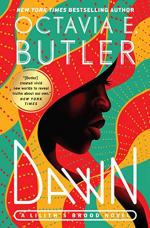|
This section contains 1,101 words (approx. 3 pages at 400 words per page) |

|
Humans need one another.
-- Lilith
(Part I: Womb)
Importance: The confidence with which Lilith relays this rather trite sentiment is what makes it so significant; she insists, early in her awakening, that she cannot function without other humans around. Later in the novel, these circumstances are reversed, and Lilith feels increasingly helpless without the intervention of her captors, the Oankali. There is truth in Lilith's statement, but it is also one that the novel makes negotiable through the politics of dependency.
Your people contain incredible potential, but they die without using much of it.
-- Jdayah
(Part I: Womb)
Importance: This statement from Jdayah pertains strongly to the novel's themes about human culture and the ways in which it is wasteful or self-sabotaging. It also, however, underscores the ways in which the Oankali treat their human subjects in much the same way that they treat the plant pods they have modified into suspended animation chambers: as potential tools.
We’re an...
-- Lilith
(Part II: Family)
|
This section contains 1,101 words (approx. 3 pages at 400 words per page) |

|



